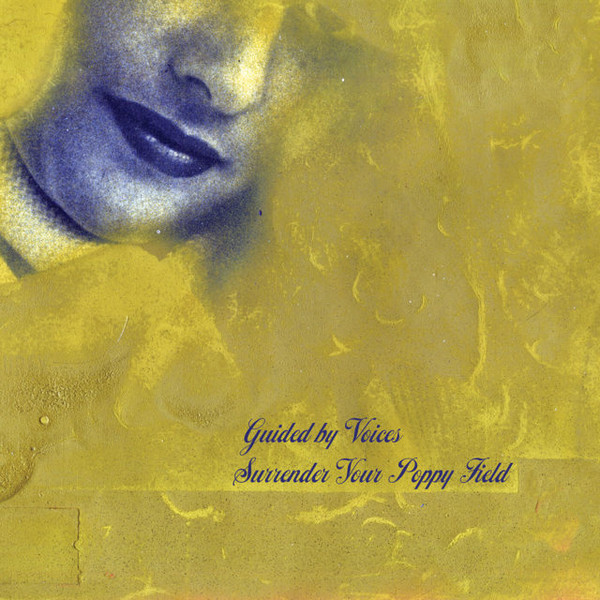MOST READ
- interview with xiexie オルタナティヴ・ロック・バンド、xiexie(シエシエ)が実現する夢物語
- Chip Wickham ──UKジャズ・シーンを支えるひとり、チップ・ウィッカムの日本独自企画盤が登場
- Natalie Beridze - Of Which One Knows | ナタリー・ベリツェ
- 『アンビエントへ、レアグルーヴからの回答』
- interview with Martin Terefe (London Brew) 『ビッチェズ・ブリュー』50周年を祝福するセッション | シャバカ・ハッチングス、ヌバイア・ガルシアら12名による白熱の再解釈
- VINYL GOES AROUND PRESSING ──国内4か所目となるアナログ・レコード・プレス工場が本格稼働、受注・生産を開始
- Loula Yorke - speak, thou vast and venerable head / Loula Yorke - Volta | ルーラ・ヨーク
- interview with Chip Wickham いかにも英国的なモダン・ジャズの労作 | サックス/フルート奏者チップ・ウィッカム、インタヴュー
- interview with salute ハウス・ミュージックはどんどん大きくなる | サルート、インタヴュー
- Kim Gordon and YoshimiO Duo ──キム・ゴードンとYoshimiOによるデュオ・ライヴが実現、山本精一も出演
- Actress - Statik | アクトレス
- Cornelius 30th Anniversary Set - @東京ガーデンシアター
- 小山田米呂
- R.I.P. Damo Suzuki 追悼:ダモ鈴木
- Black Decelerant - Reflections Vol 2: Black Decelerant | ブラック・ディセレラント
- Columns ♯7:雨降りだから(プリンスと)Pファンクでも勉強しよう
- Columns 6月のジャズ Jazz in June 2024
- Terry Riley ——テリー・ライリーの名作「In C」、誕生60年を迎え15年ぶりに演奏
- Mighty Ryeders ──レアグルーヴ史に名高いマイティ・ライダース、オリジナル7インチの発売を記念したTシャツが登場
- Adrian Sherwood presents Dub Sessions 2024 いつまでも見れると思うな、御大ホレス・アンディと偉大なるクリエイション・レベル、エイドリアン・シャーウッドが集結するダブの最強ナイト
Home > Reviews > Album Reviews > Guided By Voices- Surrender Your Poppy Field

Guided By Voices
Surrender Your Poppy Field
Guided By Voices Inc.
Ian F. Martin(訳:坂本麻里子) Apr 08,2020 UP
ガイデッド・バイ・ヴォイシズはもうアルバムを作らなくなっている。というか、少なくとも一般的な意味での「アルバム」は作らない。だが、ガイデッド・バイ・ヴォイシズはそもそも通念的な「ロック・バンド」ではないわけで、したがってそうなっても不思議はないのかもしれない。
いつ頃からこの状態になったかははっきりと特定しにくい。1980年代のオハイオ州デイトンで、中心人物にして全活動期間通して参加している唯一のメンバーであるロバート・ポラード宅の地下室にふらりとやって来たほとんど雑多と言っていい顔ぶれからはじまった彼らは、ある意味普通に言うところの「バンド」だったためしはなかったのだから。そこから彼らの生み出したボロくくたびれたローファイな傑作群は、USインディ界のオリジン・ストーリーのひとつに型破りでときに困惑させられもする奇妙な背景をもたらしていった。それでも、バンド初期にあたる80年代からもっとも長い散開期に入った2004年までの間に彼らの放出した作品の多くは、ユニークかつしばしば特筆に値する内容を誇る一連の作品群として熱く聴きこめる。これらのアルバムは、ひっきりなしに変化を潜っていたこのバンドがそのときそのときの状況に応じて発した反応をくっきり刻んだものとして理解し消化できると思う。
そうなった理由として、レコード・レーベル側のプロモーションおよび作品流通スケジュールという縛りは部分的に影響していたかもしれない。ゆえにガイデッド・ヴォイシズというブランド名が発する作品は1年か2年に1作程度に絞られることになり、ポラードは氾濫する膨大なソングライティングの流れをソロ作や数多のサイド・プロジェクトへと向けることになった。実際、2004年に起こったガイデッド・バイ・ヴォイシズの「終結」以来(註1)、ポラードは自らのレーベルを通じ、復活したガイデッド・バイ・ヴォイシズのふた通りのラインナップも含む多種多様な自己プロジェクトで実に50枚以上(数えてみてほしい!)のアルバムを発表してきた。折りに触れてでたらめにすごい勢いで時間の裂け目から流れ出し現在に漂着する、忘れられていたガレージ・パンクの古いヒットやレア曲の尽きることのない泉か何かのように。
では2020年のいま、ガイデッド・バイ・ヴォイシズのようなバンドをどうとらえればいいのだろう?
1994年に丁寧に歌の形で提示してくれたように(註2)、ロバート・ポラードにはじつは4つの異なる顔がある。まず彼は、作品を通じて自らを検証し理解するという意味で科学者だ。また彼はロック・ヒストリーに対する意識が非常に強く、ゆえに彼の音楽はよくロックの伝統やインディ音楽ファンのライフスタイルに対する一種の間接的な解説になってもいて、その意味では記者ということになる。自分自身のために音楽を作っているだけではなく、それが聴き手のくそったれな日常への癒しを処方薬のように振り出すことになってもいる意味で、彼は薬剤師でもある。そして彼は迷える魂でもある――彼に自由をもたらす唯一の径路を約束してくれるものの、やればやるほど彼をつまはじきにしていく、このインディ・ミュージック界というものにますます深くはまって自らを窮地に陥れているという意味で。もっと平たく言えば、ポラードの音楽は常に内省とポップ感覚とのバランスをとってきたし、かつそのオタクな起源に対する自覚とひたむきな傾倒とのつり合いも見事に保ってきた、ということだ。
さまざまな要素が複雑に絡まったこれと同様のバランスは、ガイデッド・バイ・ヴォイシズのファン連中がなかば皮肉混じりに、しかし同時に心底からの思いで彼らを「現代最高のロック・バンド」だのそれに近い表現で賞賛する様にも表れている。そうした形容は、バンドの誇る否定しようのないパフォーマンスおよび作曲技巧の熟練ぶりを褒め称えるとともに、じつにマニアックでニッチな居場所におさまって満足している何かに対してそれこそスタジアム・ロック・バンドを祭り上げるような大袈裟なフレーズを投げかけている、彼らファン自身を自ら笑い飛ばすものでもある。その意味で、ガイデッド・バイ・ヴォイシズはオルタナティヴとインディの気風に内在する、直観に反するあまのじゃくな核を代表するバンドと言える。パワフルな共有体験で人びとをひとつにしようとする一方で、彼らはまたメインストリーム側に定義された「普遍的な体験」なる概念をあえて覆そうとしてもいるのだから。
というわけで、『Surrender Your Poppy Field』に話を移そう。ローファイな地下室レコーディングの美学とプログレのスケール感、崇高なポップ錬金術とガタついたポスト・パンクの無秩序とが楽しげにぶつかり合うこの作品は、それらすべてをドクドク鼓動するロックンロールのハートに備わった救済のパワーに対する真摯で子供のように純真な、衰え知らずの情熱的な信頼でもって演奏している。
ここでまた、ガイデッド・バイ・ヴォイシズから滔々と流れ出す音楽を果たして「アルバム」のように不連続なフォーマットで区切ることはこれ以上可能なのだろうか? という本稿冒頭の疑問が頭をもたげてくる。現行ラインナップになってからわずか3年の間に、彼らは既にアルバムを7枚発表し(うち2作は2枚組)、3枚は2019年に登場している。読者の皆さんがこのレヴューを読む機会に行き当たる前に、また別の作品を発表してしまっている可能性だって大いにあり得る。そうした意味でこの最新作のことは、彼らにとっておなじみのさまざまな影響群・テーマ・創作アプローチの数々をミックスしたものを再び掘り下げ調合し直す、その休みなくえんえんと続くプロセスのもっかの到達点として理解した方がいいだろう。いずれにせよ、本作は見事な名人芸を聴かせてくれる。『Zeppelin Over China』(2019)での威勢のいいガレージ・ロック、『Warp and Woof』(2019)の抑制されたローファイな実験性および脱線ぶり、『Sweating the Plague』(2019)でのプログレへの野心を組み合わせた上で、それらすべてが1枚の誇らしく、タイトに洗練されたレコードとしてまとまっている。1990年代および2000年代初期の〈マタドール・レコーズ〉在籍時以来、ガイデッド・バイ・ヴォイシズの最良作かもしれない。
“Physician”やアルバム1曲目“Year of the Hard Hitter”のような曲はまったく脈絡のなさそうな別の曲の断片の合間をきまぐれかつスリリングに行き来するが、そのどれもにロックなリフの生々しい調子がみなぎっている。この点に関しては、1997年から2004年までの間(この時期のハイライトとして『Mag Earwhig!』、『Isolation Drills』、『Speak Kindly of Your Volunteer Fire Department』、『Half Smiles of the Decomposed』がある)ポラードとともにバンドを牽引した後、現在の新体制ガイデッド・バイ・ヴォイシズに返り咲いたギタリストのダグ・ギラードの貢献が大きいのはまず間違いないだろう。彼が顔を出すと必ずと言っていいほどキャッチーでヘヴィなハード・ロック/グラム・ロック調のギター・リフが前面に出てくるし、ここでそのリフはポラードのもっとも喜びに満ちて楽しげな、ゴングやジェネシスが残響したかと思えばXTCやワイアーを彷彿させることも、という具合に敏捷に変化するソングライティングとの対比を生んでいる。
ガイデッド・バイ・ヴォイシズのベストな作品がどれもそうであるように、バンドがロックの伝統相手に繰り広げる支離滅裂かつアナーキックなおもちゃの兵隊ごっこの全編を通じて、このアルバムにもアンセミックで思わずこぶしを突き上げたくなるロックな歓喜のピュアなハートが脈打っている。それがもっとも顕著なのは途方もなくビッグな2曲目“Volcano”であり、ガレージ・ロックの金塊(ナゲッツ)を凝縮したような一聴カジュアルな響きの“Cul-De-Sac Kids”や“Always Gone”、“Queen Parking Lot”にも繰り返し浮上する。聴いていると、1990年代に極まった、ガイデッド・バイ・ヴォイシズのローファイな壮麗さという混沌の中に混じっていた“My Son Cool”や“Gold Star for Robot Boy”といった名曲を発見した際の思いがけない喜びが再燃する。
ガイデッド・バイ・ヴォイシズのようなバンドの体現する、途切れなく続く爆発的なクリエイティヴィティから受け取るめまいのするほどの歓喜。それをその果てしない作品の流れを感知していない人間相手に伝えようとすると、どうしたって狂信的なファンのように思われてしまうのは仕方がない。とはいえ結局のところ、いちばんのアドヴァイスとしては、ピッチフォークのアルバム評がやるような理性派もどきで冷静なアート・ギャラリー型の言葉(とレヴューに科学的/客観的な気取りを添えている例の採点システム)で新しい音楽を考えようとしてしまうあぶなっかしい思考回路の一部を、まずいったん振り捨ててもらうことだろう。そうしたところでこの変化し続け、つねに歩調がずれている、いつ果てるとも知れない恍惚に満ちたカオスに悔いなく身を投じてみてもらいたい。あなたの内に潜んでいるマニアックな面を受け入れよう。僕らの仲間に加わろうじゃないか。
訳註1――ガイデッド・バイ・ヴォイシズは2004年にいったん解散したことがあり、同年正式に「さよならツアー」もおこなった。
訳註2――以下に続く「Scientist/Journalist/Pharmacist/Lost soul」は“I Am a Scientist”の歌詞の引用。同曲はガイデッド・バイ・ヴォイシズのもっとも有名なアルバム『Bee Thousand』(1994)収録。
Ian F.Martin
Guided By Voices don’t really make albums anymore. At least not in a conventional sense. But then Guided By Voices aren’t really a rock band in a conventional sense either, so maybe that’s to be expected.
Since when this has been the case isn’t entirely clear. In a sense, they’ve never been a normal band, with their roots as an almost random collection of people drifting through the band’s central figure and sole consistent member Robert Pollard’s Dayton, Ohio basement in the 1980s, creating ragged lo-fi masterpieces that formed an offbeat and sometimes bewildering background to the origin tale of indie rock in the United States. Still, much of their output, from their early days in the ‘80s through to their most extended split in 2004, can be absorbed as a series of unique and often striking works — albums that can be understood and processed as distinctive responses to their own unique circumstances at a rapidly changing time for the band.
Partly, this might be down to the restraining influence of record label promotion and distribution schedules, limiting the Guided By Voices brand to one release every year or two, with Pollard directing his songwriting overflow into solo releases and side projects. Indeed, since the 2004 “end” of Guided By Voices, Pollard has used his own labels to release more than 50 (count them!) albums from various of his projects, including two resurrected Guided By Voices lineups, like an endless stream of lost garage-punk hits and oddities flowing through cracks in time and landing in haphazard, explosive bursts in the here and now.
So how do we make sense of a band like Guided By Voices in 2020?
As he helpfully laid out for us in song form back in 1994, Robert Pollard is four different things at heart. He is a scientist, in the sense that he uses his work to examine and understand himself. He is a journalist in the sense that he is extremely conscious of rock history, and his music often forms a sort of oblique commentary on rock’s own traditions and the indie music fan lifestyle. He is a pharmacist, not only making music for himself but also packaging out morsels of comfort to ease his listeners’ fucked up lives. And he is a lost soul: digging himself ever deeper into this indie rock world that only isolates him ever further, even as it promises his only route to freedom. Put more simply, Pollard’s music has always balanced introspection and pop sensibility, as well as self-awareness of and deep dedication to its geeky provenance.
The same interrelated balance of elements is expressed in a way by Guided By Voices fans’ half- ironic yet at the same time deeply sincere celebration of them as “the greatest rock band of the modern era” and similar praise — lines that celebrate the band’s undeniable mastery of performance and song-craft at the same time that they laugh at themselves for piling such stadium rock superlatives on something so comfortable in its maniac niche. In that sense, Guided By Voices represent the counterintuitive core of the alternative and indie ethos: they seek to bring people together in a powerful shared experience, while at the same time deliberately seeking to undermine the notion of a universal experience as defined by the mainstream.
Which brings us to Surrender Your Poppy Field: a joyous collision of lo-fi basement recording aesthetics and prog rock grandeur, sublime pop alchemy and fractured post-punk anarchy, all delivered with the earnest, wide-eyed and ever-passionate belief in the power for salvation that lies in the beating heart of rock’n’roll.
It also brings us back to the question of whether it is even possible to divide the flow of music that comes out of Guided By Voices into something as discrete as an album anymore. The current lineup of the band has only been together for three years and has already released seven albums (including two double-albums), with three of them coming out in 2019. It’s entirely possible that the band will have released another before you even get a chance to read this review. In that sense, this latest is better understood as a progress marker in a process of constant re- exploration and re-formulation of the band's familiar cocktail of influences, themes and creative approaches. Either way, it’s a masterful one, combining the garage rock swagger of Zeppelin Over China (2019), the pared-down lo-fi experimentations and excursions of Warp and Woof (2019) and the progressive rock ambition of Sweating the Plague (2019) in a way that melds them all into one glorious, tightly-refined record — possibly Guided By Voices’ finest since their Matador Records days back in the ‘90s and early 2000s.
Songs like Physician and the opening Year of the Hard Hitter ricochet capriciously and thrillingly between what feel like fragments of entirely different songs, all equally rich in raw veins of rock riffage. For this, a lot of credit must surely go to guitarist Doug Gillard, returned to this new GBV fold after co-navigating with Pollard the years 1997-2004 (highlights include Mag Earwhig, Isolation Drills, Speak Kindly of Your Volunteer Fire Department and Half Smiles of the Decomposed). Gillard’s presence always flags up the presence of catchy, heavy, hard rock/glam riffs, which here are set against Pollard’s songwriting at its most joyously playful, skating between echoes of Gong and Genesis just as easily as it recalls XTC and Wire.
Like all Guided By Voices at their best, there is a pure heart of anthemic, fist-pumping rock elation running through the whole scrappy, anarchic game of toy soldiers with rock traditions that the band are playing. Most obviously on display in the monumental second track Volcano, it also surfaces again and again in casual-seeming miniature garage-rock nuggets like Cul-De-Sac Kids, Always Gone and Queen Parking Lot, in a way that rekindles some of the unexpected joy of discovering tracks like My Son Cool or Gold Star for Robot Boy bursting out of the chaos of Guided By Voices’ at the peak of their 1990s lo-fi pomp.
Communicating the dizzy joy of the constant, explosive creativity a band like Guided By Voices embody to anyone not plugged into the endless stream without coming across as insane is always a challenge. In the end, though, the best advice is to throw off that treacherous part of your mind that thinks of new music in the faux-rational art gallery terms of a Pitchfork album review (complete with the scientific affections of a numerical grade) and cast yourself into the ever-evolving, always out-of-step, never-ending ecstatic chaos without regrets. Embrace your inner maniac. Join us.
ALBUM REVIEWS
- Loula Yorke - speak, thou vast and venerable head/ Loula Yorke - Volta
- Actress - Statik
- Black Decelerant - Reflections Vol 2: Black Decelerant
- High Llamas - Hey Panda
- The Stalin - Fish Inn - 40th Anniversary Edition -
- KRM & KMRU - Disconnect
- Cornelius - Ethereal Essence
- Kronos Quartet & Friends Meet Sun Ra - Outer Spaceways Incorporated
- Martha Skye Murphy - Um
- Mouchoir Étanche - Le Jazz Homme
- Taylor Deupree - Sti.ll
- John Cale - POPtical Illusion
- Amen Dunes - Death Jokes
- A. G. Cook - Britpop
- James Hoff - Shadows Lifted from Invisible Hands


 DOMMUNE
DOMMUNE